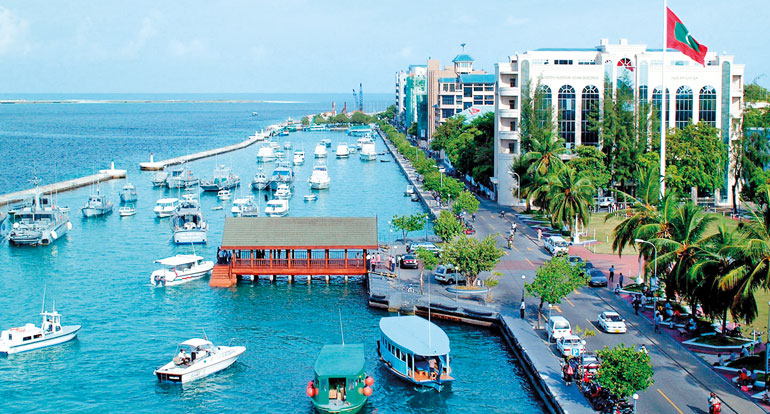Monday Feb 16, 2026
Monday Feb 16, 2026
Monday, 29 February 2016 00:00 - - {{hitsCtrl.values.hits}}

In a report launched from London on 24 February 2016, the Commonwealth Human Rights Initiative (CHRI) brief based on a mission to the Maldives from 22–26 November 2015 emphasised grave concerns regarding the protection of human rights, democracy and rule of law in the Maldives.
The mission’s objective was to evaluate the compliance of the Maldives with the Commonwealth’s fundamental political values and core documents, including the Commonwealth Charter and Latimer House Principles, as well as international standards. The members of the fact-finding mission were Satyabrata Pal, a former Indian Ambassador to Pakistan and former member of the Indian National Human Rights Commission, Kishali Pinto-Jayawardena and Asad Jamal, both prominent legal practitioners from Sri Lanka and Pakistan respectively, and Uladzimir Dzenisevich from CHRI.
The mission was able to arrive at several clear conclusions more fully elaborated in this report. The survival of democracy itself appears to beat stake in the Maldives. Since coming to power in November 2013, President Abdulla Yameen’s government has curtailed human rights, democracy, and rule of law in violation of the Maldives Constitution, UN and Commonwealth standards. As a result, fundamental rights stand considerably diluted, democratic processes further weakened, giving rise to a real threat of return of authoritarian rule in the island country. It appears clear that this Government is working to silence dissenting voices, paving the way to possibly revert back to an authoritarian system.
This trend toward a restricted civic and political space is accompanied by the rise of radicalised non-state actors keen on harassing those who are perceived as secular or “un-Islamic”, with the Government failing to take meaningful measures against radical groups. The joint effect of an increasingly authoritarian state, tolerating (or – as some interviewees suggested – using) radicalised non-state actors as its arsenal, is changing Maldivian society in the most dramatic way. It is disenfranchising and, in some cases, physically endangering political opposition, human rights organisations, journalists and activists, who are finding now the space to act and express themselves has shrunk significantly. Predictably, women as a societal group are on the frontlines of such marginalisation.
The implications are both severe and numerous. The brief covers the following areas: increasing human rights violations committed with impunity; shrinking space for civil society, opposition and independent media to operate; degradation of Constitutionalism and the rule of law; decay of independent institutions in particular and good governance in general; judicial overreach and interventionism; politically motivated criminal charges and imprisonments; increasing police harassment and violence; as well as increasing harassment and violence committed by radical elements. It is compiled with a view to share these essential findings with the Commonwealth, governments and international organisations.